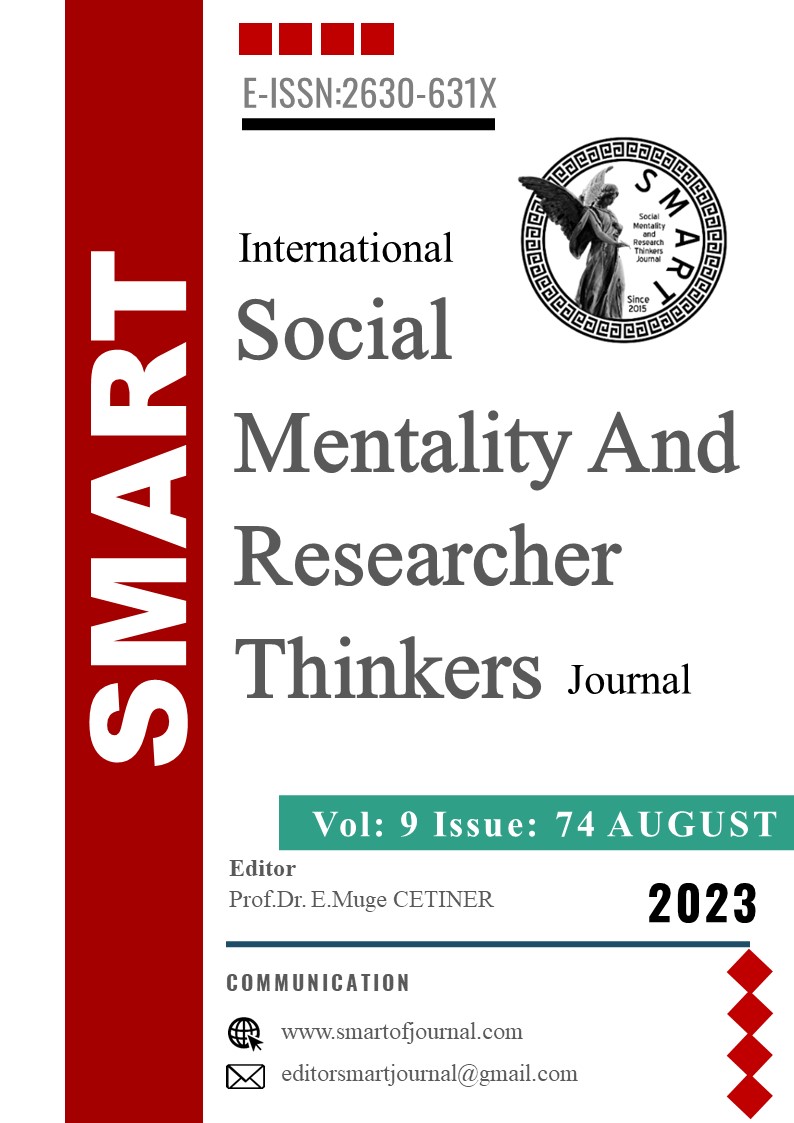Spor Bilimleri Fakültesi Öğrencilerinin Öz Yeterlilik Algılarıyla Liderlik Etme Motivasyonu Arasındaki İlişkinin İncelenmesi
Author :
Abstract
Bu araştırma spor bilimleri fakültesi öğrencilerinin öz yeterlilik algılarıyla liderlik etme motivasyonu arasındaki ilişkiyi ortaya koymayı hedeflemektedir. Araştırmanın çalışma grubunu Niğde Ömer Halisdemir Üniversitesi Spor Bilimleri Fakültesinde lisans programına kayıtlı olasılık seçim yöntemiyle belirlenmiş 280 birey oluşturmaktadır. Araştırmada öğrencilerin cinsiyet, sınıf ve bölüm bilgilerini toplamak amacıyla kişisel bilgi formu kullanılmıştır. Genel öz yeterlilik düzeyleri için Schwarzer ve Jerusalem’in (1995) geliştirdikleri Aypay (2010) tarafından Türkçeye uyarlanan Genel Öz Yeterlik Ölçeği ve liderlik etme motivasyonu için Chan ve Drasgow’un (2001) geliştirdiği Polatcan ve Cansoy (2020) tarafından Türkçeye uyarlanan Liderlik Etme Motivasyonu (LEM) Ölçeği kullanılmıştır. Araştırmada demografik değişkenler, öz yeterlilik algıları ve liderlik etme motivasyonu düzeylerine ilişkin analizler için tanımlayıcı istatistiksel analizler kullanılmıştır. Verilerin analizinde bağımsız örneklem t-testi, tek yönlü varyans (ANOVA) analizi ve Pearson Korelasyon testi kullanılmıştır. Araştırma sonucunda duyuşsal kimlik liderlik etme alt boyut puanlarının erkekler ile kadınlar arasında anlamlı farklılık tespit edilmiştir. 4.sınıf ve 3. Sınıf öğrencilerinin öz yeterlilik ölçeği puanlarının 1.sınıf ve 2.sınıfa göre anlamlı şekilde farklılaştığı tespit edilmiştir. Öğretmenlik bölümü öğrencilerinin duyuşsal liderlik etme ve sosyal normatif liderlik etme alt boyut puanlarının antrenörlük öğrencilerine göre anlamlı bir şekilde farklılaştığı tespit edilmiştir. Yapılan bu çalışma sonucunda liderlik etme motivasyonu ile genel öz yeterlilik düzeyi arasında orta düzeyde pozitif yönlü anlamlı bir ilişki olduğu tespit edilmiştir.
Keywords
Abstract
This research aims to reveal the relationship between the self-efficacy perceptions of the students of the faculty of sports sciences and the motivation to lead. The study group of the study consists of 280 individuals determined by the probability selection method enrolled in the undergraduate program at the Faculty of Sports Sciences of Niğde Ömer Halisdemir University. In the research, a personal information form was used to collect students' gender, class and department information. The Turkish version of the General Self-Efficacy Scale developed by Schwarzer and Jerusalem (1995), adapted to Turkish by Aypay (2010), and the Turkish version of the Leadership Motivation Scale developed by Polatcan and Cansoy (2020), developed by Chan and Drasgow (2001), were used for general self-efficacy levels. Descriptive statistical analyses were used for the analysis of demographic variables, self-efficacy perceptions and levels of motivation to lead in the research. Independent sample t-test, one-way variance (ANOVA) analysis and Pearson Correlation test were used in the analysis of the data. As a result of the research, it was found that there is a significant difference between the scores of the affective identity leadership sub-dimension between men and women. 4.class and 3. 1 Of the self-efficacy scale scores of the grade students.it has been found that it differs significantly according to grade and 2nd grade. It has been found that the affective leadership and social normative leadership sub-dimension scores of the teaching department students differ significantly compared to the coaching students. As a result of this study, it has been found that there is a Decently positive significant relationship between motivation to lead and general self-efficacy level.
